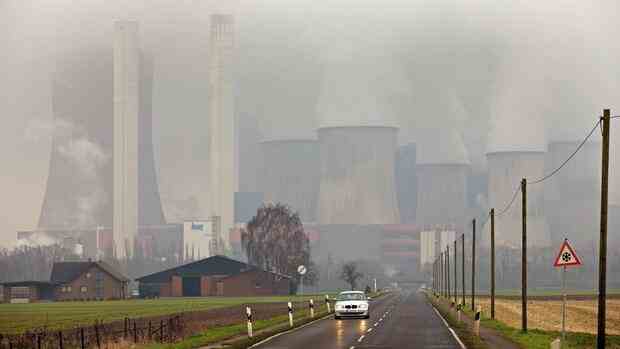Some market participants do opaque deals with pollution certificates.
(Photo: imago/blickwinkel)
Munich People with questionable offers like to get in touch with Michael Kroehnert. The 66-year-old trades in emission certificates. And there he encounters some things that seem suspicious: “If a trader I don’t know wants to sell 10,000 certificates that are up to 20 cents below the market price, my alarm bells ring,” says the Berliner. “Anyone who voluntarily makes losses has other motives. To me, that smells like money laundering.”
Kroehnert’s customers include companies that participate in EU emissions trading (EU ETS), including electricity suppliers and industrial companies. With his team of eight, he buys and sells CO2 certificates, which are pollution rights: Anyone who wants to emit a certain amount of CO2 must buy the corresponding certificates. This should ensure that Europe does not emit more CO2 than the international community has set in its climate targets.
The EU introduced the EU ETS in 2005. If pollution becomes expensive, then companies will become cleaner, according to the calculation.
Read on now
Get access to this and every other article in the
Web and in our app free of charge for 4 weeks.
Further
Read on now
Get access to this and every other article in the
Web and in our app free of charge for 4 weeks.
Further
